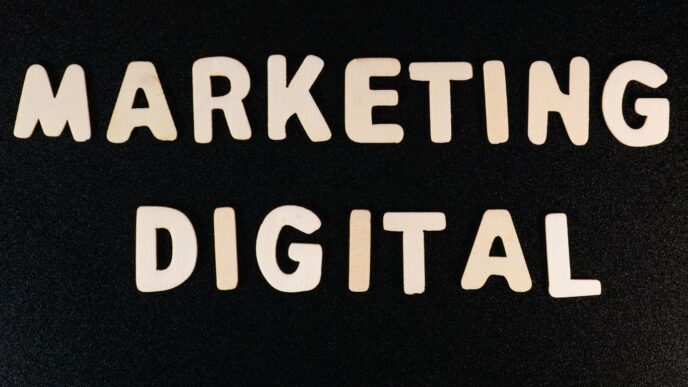Figuring out what you can and can’t share at work can be tricky. There are a lot of rules about keeping business secrets and personal employee details private. This stuff matters for everyone, whether you’re running a company or just clocking in. We’ll break down the basics of employment confidentiality laws, so you know where you stand.
Key Takeaways
- Employees generally have a duty to keep certain information confidential, even after they leave a job. This duty often comes from common law and can be reinforced by specific agreements.
- Employers can protect information that has real value, but they need to take steps to show it’s meant to be kept secret. Think watermarks on documents or clear policies.
- During workplace investigations, balancing the need to find facts with protecting people’s privacy is important. Information should only be shared with those who absolutely need to know.
- Laws like the Pay Equity Act and federal privacy legislation set rules for handling sensitive data. Non-disclosure agreements (NDAs) can also be legally binding if they meet certain requirements.
- Clearly defining what counts as confidential information is key. Ambiguity can lead to misunderstandings and potential legal issues for both employers and employees.
Understanding Employee Confidentiality Obligations
When you start a new job, there’s a lot to take in, and sometimes the rules about keeping things quiet aren’t at the top of your mind. But here’s the deal: most employees have a basic duty to be honest and not spill the beans on company secrets. It’s kind of like an unspoken agreement that comes with the job. You’re expected to act in good faith, and that includes protecting information that isn’t public knowledge.
The Implied Duty of Good Faith
This isn’t usually something written down in your contract, but it’s there. It means you can’t just go around sharing sensitive company stuff, especially if it could hurt the business. Think of it as a general expectation that you’ll look out for the company’s interests while you’re employed. This duty is pretty standard across most jobs.
Information Considered Confidential
So, what counts as confidential? It can be a lot of things. It might be personal details about other employees, like their pay, gender identity, or performance reviews. It could also be business-related information that isn’t out in the open. This includes things like financial data, customer lists, marketing plans, or even how a company makes its products. Basically, if it’s not something everyone knows, and it could give someone an edge if they got it, it’s probably confidential.
Here’s a quick look at what might be considered confidential:
- Employee personal data (e.g., salary, gender identity)
- Executive compensation and performance awards
- Business strategies and financial information
- Customer or client lists
- Proprietary business processes
Post-Employment Confidentiality
This is where things get a bit tricky for some people. You might think that once you leave a job, you’re free to talk about everything you learned. But that’s not always the case. The duty to keep certain information confidential often continues even after you’ve handed in your notice. Courts have said that employers have a right to protect valuable business information, and that protection doesn’t just stop when your last paycheck clears. If you misuse or share sensitive information after you’ve left, you could still face legal trouble. It’s a good idea to be mindful of this, even after you’ve moved on to your next opportunity.
Protecting Sensitive Business Information
Businesses often have information that’s not for public eyes. This could be anything from customer lists and financial reports to marketing strategies and proprietary processes. Employers have a right to protect valuable and sensitive business information that isn’t common knowledge. Think of it like a secret recipe; you wouldn’t just hand it out to anyone, right? The same applies to your company’s data.
So, how do you figure out what counts as confidential? Courts often look at a few things:
- How widely known is the information outside the company? If everyone already knows it, it’s probably not confidential.
- How many people inside the company know about it? The fewer people who have access, the more likely it’s considered sensitive.
- What steps has the company taken to keep it secret? Did they put up fences, metaphorically speaking?
- How valuable is this information to the business and its rivals? If competitors would pay a lot for it, that’s a big clue.
- How much did the company invest in creating this information? Significant investment often means it’s worth protecting.
- How easy is it for someone else to get this information legitimately? If it’s hard to find through normal channels, it’s likely confidential.
Employers need to take reasonable steps to keep this information safe. This might involve things like password protection, limiting access to certain files, or even having employees sign agreements that spell out what they can and can’t share. It’s not just about during your employment, either. This duty often continues even after you’ve left the company. Protecting your company’s data is a big deal, and there are resources available to help you understand the best practices, especially when it comes to digital security and preventing cybercrime, like understanding how social media can be exploited for identity theft. Making sure everyone knows what’s off-limits and why is key to keeping business secrets safe.
Confidentiality in Workplace Investigations
When something goes wrong at work, like a complaint or a serious issue, an investigation usually follows. It’s a tricky situation because you have to figure out what happened, but you also have to be really careful about who knows what. Keeping things private is a big deal during these times. It’s not just about being nice; there are actual rules about it, especially when personal details or sensitive business stuff is involved. Think about it – if someone makes a complaint, they need to feel safe talking about it, and the person accused also deserves a fair shake without gossip spreading everywhere. It’s a balancing act, for sure.
Balancing Privacy and Fairness
This is where things get complicated. On one hand, you need to get to the bottom of things, which means talking to people and gathering information. But you can’t just go around telling everyone the details. Employees have a right to privacy, and fairness means not making assumptions or letting rumors fly. You have to be smart about who gets to know what, and why. It’s like trying to solve a puzzle without showing all the pieces to everyone at once. You need to make sure the investigation itself is fair, and that means protecting the people involved from unnecessary exposure. This often means following specific procedures, like those outlined in Ontario’s Occupational Health and Safety Act.
Need-to-Know Basis for Disclosure
So, how do you manage all this? The main idea is to share information only with people who absolutely need it to do their job in the investigation. For example, the person who made the complaint might need to know who they are complaining about to respond properly. But a witness? They might not need to know the complainant’s name to give their account of what they saw. It’s about limiting the circle of knowledge. Investigators often explain this to everyone involved, making it clear that while they try to keep things quiet, complete secrecy isn’t always possible. They might also ask people to sign a statement promising not to talk about the investigation. Keeping notes and documents secure is also key; you don’t want to be emailing sensitive interview notes around.
Role of External Investigators
Sometimes, companies bring in outside people to handle investigations. This can be a good move for confidentiality. These external folks are usually experienced in keeping things quiet and are not part of the daily office chatter. Because they aren’t working in the office every day, they don’t carry the information back into the workplace after the investigation is done. It adds a layer of independence and can help maintain trust among employees. They know the best ways to handle sensitive information and interviews, often choosing private locations or times that won’t be overheard, making it easier for people to speak openly.
Legal Frameworks for Employment Confidentiality
When we talk about keeping things private at work, it’s not just about a handshake agreement. There are actual laws and rules that set the stage for what’s considered confidential and how it should be handled. Understanding these legal structures is pretty important for both sides of the employment coin.
The Pay Equity Act Provisions
The Pay Equity Act has some specific rules about keeping information confidential, especially when it comes to pay data. If you’re on a pay equity committee, for instance, you’re often privy to sensitive details about salaries, bonuses, and other compensation. The Act generally requires that this kind of information, once designated as confidential by the employer, employee, or union, must be treated as such. This duty doesn’t just disappear when you leave the committee; it sticks with you even after your employment ends. It’s a good idea to be aware of these rules if your job involves handling such sensitive financial details. For example, if an employer designates salary information as confidential, committee members cannot just chat about it with colleagues who aren’t part of the committee. It’s a clear line drawn to protect personal financial data.
Federal Privacy Legislation
Beyond specific acts like Pay Equity, there’s a broader landscape of federal privacy laws that touch upon employee information. Depending on the type of business, laws like the Personal Information Protection and Electronic Documents Act (PIPEDA) might apply. This legislation governs how private sector organizations handle personal information. Employers need to be mindful of how they collect, use, and store employee data, whether it’s payroll records, performance reviews, or even browsing history. Respecting employee privacy isn’t just good practice; it’s often a legal requirement. Many provinces also have their own privacy laws that can add another layer of obligation for employers. It’s a good idea to check out resources that outline essential HR confidentiality laws to get a clearer picture of your obligations [cf71].
Enforceability of Non-Disclosure Agreements
Non-Disclosure Agreements, or NDAs, are common tools employers use to protect their sensitive business information. These are formal contracts that spell out what information an employee cannot reveal, often extending beyond their employment. For an NDA to be legally binding, it generally needs to be reasonable in scope and duration. Courts will look at whether the employer has a legitimate business interest to protect, like trade secrets or client lists, and if the restrictions placed on the employee are necessary to safeguard that interest. If an NDA is too broad, perhaps covering general knowledge or skills an employee gained, a court might find it unenforceable. It’s a balancing act, really, between an employer’s right to protect its valuable assets and an employee’s ability to use their acquired skills in future work.
Defining and Designating Confidential Data

Figuring out what counts as confidential information is a big part of keeping things secure at work. It’s not always black and white, and what one company considers secret, another might not. Think about it like this: some information is obviously sensitive, like customer lists or financial reports. But other things might be less clear, like internal process improvements or even certain employee performance details. Clearly marking what needs to be kept private is key to avoiding mix-ups.
Identifying Confidential Information
So, what kind of stuff usually falls under the confidential umbrella? It can be a wide range of things, really. It’s often information that isn’t public knowledge and could give a competitor an edge if it got out. This might include:
- Personal Employee Data: This could be anything from salary details, bonuses, and allowances to more personal information like gender identity. Even after someone leaves the company or a committee, this information generally stays confidential.
- Business Operations: Think about things like sales figures, marketing strategies, product development plans, or proprietary software. This is the kind of data that helps a business run and stay ahead.
- Financial Information: This covers everything from revenue and profit margins to investment details and budget allocations. It’s usually pretty sensitive.
Methods for Designating Confidentiality
How do you actually mark something as confidential? There are a few ways employers do this. Sometimes, it’s as simple as putting a clear label on it. For documents, a watermark saying "Confidential" is pretty common. For verbal discussions, it’s good practice to state upfront, "This conversation is confidential." It’s all about making sure everyone involved knows the rules.
- Written Labels: Adding "Confidential" or similar markings directly onto documents, emails, or digital files.
- Verbal Cues: Explicitly stating the confidential nature of a discussion at its beginning.
- Policy Statements: Including clear guidelines in employee handbooks or specific project agreements about what information is considered confidential.
- Secure Systems: Using password-protected files or secure communication channels can also implicitly designate information as private.
Ambiguity and Clarity in Definitions
Sometimes, things get a bit fuzzy. If the definition of what’s confidential isn’t clear, it can lead to problems. For instance, if a company’s pay equity committee is looking at salary data, and it’s not explicitly stated that this data is confidential, an employee might mistakenly think it’s okay to discuss it openly. Clear, specific definitions prevent misunderstandings and help everyone follow the rules. It’s better to over-specify than to leave room for doubt. If there’s a chance information could be sensitive, it’s usually best to treat it that way until it’s clarified.
Sharing and Disclosing Confidential Information
So, you’ve got this sensitive info, and now you’re wondering who can see it and when. It’s not always a simple yes or no. Generally, information shared for a specific reason, like working on a pay equity plan, should only be used for that exact purpose. Think of it like borrowing a tool – you use it for the job you borrowed it for, then you give it back, right? You can’t just take it home and start a side business with it. The core idea is that information should only be disclosed for the purpose for which it was provided.
Sometimes, sharing is necessary for the job to get done. For instance, if a pay equity committee member needs to discuss compensation details with a union representative or the employer, that’s usually allowed. But here’s the catch: whoever receives that information then has the same duty to keep it confidential. It’s like a relay race with a very important baton.
Here are some common scenarios and rules:
- Committee Work: Members of a pay equity committee might need to share data to do their jobs. This could include salary figures, performance awards, or even personal details like gender identity, if that’s relevant to the task. They need to be super careful about how they share this, maybe using secure email or discussing it only in private meetings.
- External Parties: If information needs to go outside the immediate group, like to a consultant or a legal advisor, there are usually specific agreements in place. These agreements outline what the external party can do with the information and how they must protect it. It’s all about controlling who has access and preventing leaks.
- Public Information: Information that’s already out in the open, like publicly available salary data for certain government jobs, generally doesn’t fall under these strict confidentiality rules. But if it’s not public, assume it needs protection.
It’s really up to the people involved – the employer, employees, or bargaining agents – to decide what counts as confidential and who can see it. They can even put these rules in writing, maybe in the committee’s operating rules or meeting minutes. This helps avoid confusion later on. If you’re involved in these processes, it’s a good idea to get familiar with the specific rules for your workplace, perhaps by reviewing your employer’s internet use policy to understand acceptable use and monitoring practices.
Consequences of Breaching Confidentiality

So, what happens when someone spills the beans on company secrets? It’s not just a slap on the wrist, folks. Breaking confidentiality rules can really mess things up for both the person who leaked the info and the company itself. Think about it – if sensitive client lists or product plans get out, it can seriously hurt business. Courts tend to take this stuff pretty seriously, especially when the information has real value.
Legal Ramifications for Violations
When an employee breaches confidentiality, they can face some pretty tough legal consequences. This isn’t just about losing your job, though that’s often on the table. The company might sue for damages, meaning you could end up paying for the harm caused by the leak. This could include lost profits or the cost of fixing the damage. In some cases, especially if the breach was intentional and caused significant harm, there could even be criminal charges, though that’s less common. It really depends on the nature of the information and how badly it was misused. For example, a recent court case involved a former employee who downloaded all of his company’s client data. The court ordered him to return the data and pay a hefty sum for costs, showing just how seriously these violations are viewed.
Remedies for Breaches
When a confidentiality breach occurs, there are a few ways the wronged party can seek to make things right. For employers, a common first step is to seek an injunction. This is a court order telling the person to stop using or sharing the confidential information immediately. It’s like a legal cease and desist. If the breach caused financial loss, the employer can also sue for damages. This means the person who breached confidentiality might have to pay for the money the company lost because of the leak. Sometimes, the employment contract itself will outline specific penalties for breaches. It’s all about trying to put the company back in the position it was before the breach happened.
Employer and Employee Responsibilities
Both employers and employees have roles to play when it comes to keeping things confidential. Employers need to be clear about what information is considered secret and take reasonable steps to protect it. This might mean having clear policies in place, training employees on confidentiality, and securing sensitive data. Employees, on the other hand, have an implied duty to act in good faith and not disclose confidential information, even after they leave the company. This duty continues even if it’s not explicitly written in their contract. It’s a two-way street: employers protect the information, and employees respect that protection. Failing to do either can lead to trouble.
Wrapping It Up
So, we’ve talked about how important it is to keep certain work stuff private, both when you’re employed and even after you’ve moved on. Employers need to protect their business secrets, and employees need to know what they can and can’t share. It’s a balancing act, really. Making sure everyone understands these rules helps avoid a lot of headaches down the road. Whether you’re the one running the show or just doing your job, being clear about what’s confidential and why is key. It’s all about respecting boundaries and keeping things professional.
Frequently Asked Questions
What does it mean for information to be confidential at work?
Confidential information is basically any private or secret stuff about the company or its workers that isn’t public knowledge. Think of things like salaries, personal employee details, or special plans for the business. This information needs to be protected, even after someone leaves the company.
Can employers stop employees from sharing company secrets?
Yes, employers have the right to protect important business information. They can use agreements, like Non-Disclosure Agreements (NDAs), to make sure employees don’t spill trade secrets or other sensitive data to competitors or outsiders. These rules often stick around even after the employee is no longer working there.
What happens if someone shares confidential information they shouldn’t?
Sharing secret information can lead to serious trouble. Legally, the person who shared it might face penalties or lawsuits. The company could also suffer harm, like losing money or its reputation. It’s important to follow the rules about who can see what information.
How do employers make sure information is kept private during investigations?
When looking into workplace issues, employers try to keep things private. They usually only tell people who absolutely need to know the details. Sometimes, they even hire outside experts who are good at handling sensitive information discreetly. They also tell everyone involved that complete secrecy can’t always be promised.
Are there laws that protect personal information at work?
Yes, there are laws like privacy acts that help protect personal information. Employers need to follow these rules when they collect, use, or store employee data. They should only collect what’s necessary and be clear about why they need it.
How can a company clearly mark information as confidential?
Companies can make it clear what information is private by marking it. For example, they might put a ‘confidential’ stamp on documents or mention it verbally at the start of a meeting. This helps everyone understand what needs to be protected and avoids confusion.














